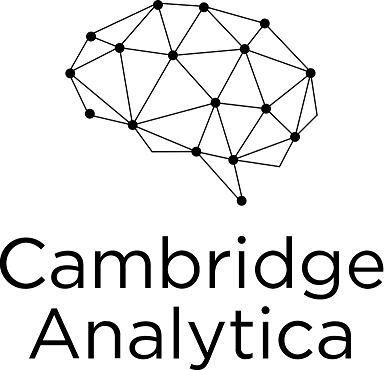WASHINGTON–Cambridge Analytica, a data firm employed by President Donald Trump’s campaign team, is facing intense scrutiny for collecting personal information from 50 million Facebook users.
The controversy was triggered after whistleblower, Christopher Wiley, revealed the firm retrieved personal data from millions of Facebook through This is My Digital Life app. – an app created by Russian American Aleksandr Kogan.)
Facebook chief executive on Wednesday apologized for the misuse of the data and promised the company would take steps to better safeguard information in the future. Much has been made of Cambridge Analytica’s early efforts to collect Facebook data to build political profiles of millions of Americans that subsequently helped President Donald Trump’s campaign organization.
However, not much has been said about what they were able to find and what it may imply about Trump’s campaign strategy and supporter’s motivations for voting for him.
It is important to understand the significance of data science and the role it plays in targeting customers or voters.
Data science is the overarching scientific method used to extrapolate patterns from data either from algorithms or processes. Data mining falls within data science and is the tactic used to identify patterns within a data set.
Companies utilize data science to collect information including demographic and psychographic information from potential customers or voters. From there, agencies employ data scientists to sift through the data to influence and target potential customers or voters through their online behaviors.
Businesses can then target a person based on where they live, work and how they think. From there, those companies can create campaigns based on that information to influence how consumers perceive a product or a candidate.
Data scientists, who are employed to sift through this data, create profiles or characteristics of individuals, and then segments them for targeting across the web. The profile the data scientists generates is based on real-time data gathered from their online behaviors.
Potential voters or customer profiles are grouped into segments and defined based on their similar characteristics. Companies then use that information to target other users – something called predictive modeling. This is a treasure for many companies as they get to create a profile of a potential customer or voter (all of which is informed by accurate real-time information collected through data points) and target them as they navigate the web.
It was important for Cambridge to collect data from Facebook to employ predictive modeling to target other potential voters. What then, were the values or similar traits the firm used to inform their strategy?
Wiley, the whistle blower who created the data the Cambridge Analytica firm used to target potential Trump voters, shared with the Chicago Tribune “what they gathered from young white Americans with a conservative bent”:
“In focus groups arranged to test messages for the 2014 midterms, these voters responded to calls for building a new wall to block the entry of illegal immigrants, to reforms intended to ‘drain the swamp’ of Washington’s entrenched political community and to thinly veiled forms of racism toward African Americans called ‘race realism,’ [Wylie] recounted.”
This isn’t new. Racism has always been the debatable factor behind the motivations of many of Trump’s voters, and the reason for his victory. Several publications, talking heads and politicians questioned what drove voters’ undying support. The Nation analyzed over 4,000 respondent data from a survey conducted by American National Elections Studies concluded:
“Both racial resentment and black influence animosity are significant predictors of Trump support among white respondents, independent of partisanship, ideology, education levels, and the other factors included in the model.”
Watch below a montage which includes discussions around the genesis of the motivations of Trump supporters as talking heads and experts tried to grasp what led him to victory:
Post Election Montage
Does Cambridge Analytica — a data firm backed by former Trump political guru Steve Bannon and the wealthy Mercer family, reaffirm the belief that racism or white supremacy is the heart of Trump’s campaign and voter’s motivations? It appears to echo the sentiments from initial reaction to Trump’s victory, which Democrats and critics asserted was racism and not change or economic anxiety.
Data science has been used by other presidential campaigns including Hillary Clinton’s and Barack Obama’s. What makes the use of Cambridge Analytica by Trump’s campaign staff unique is the means by which the personal information was gathered. (Allegedly, it infringed on Facebook’s community guidelines). Most importantly, it reveals the desires and characteristics of Trump’s voters.
What do you think of the data Cambridge Analytica collected from Facebook?
Sound off below:
What do you think of the data Cambridge Analytica collected from Facebook?
— Medill on the Hill (@medillonthehill) March 23, 2018

